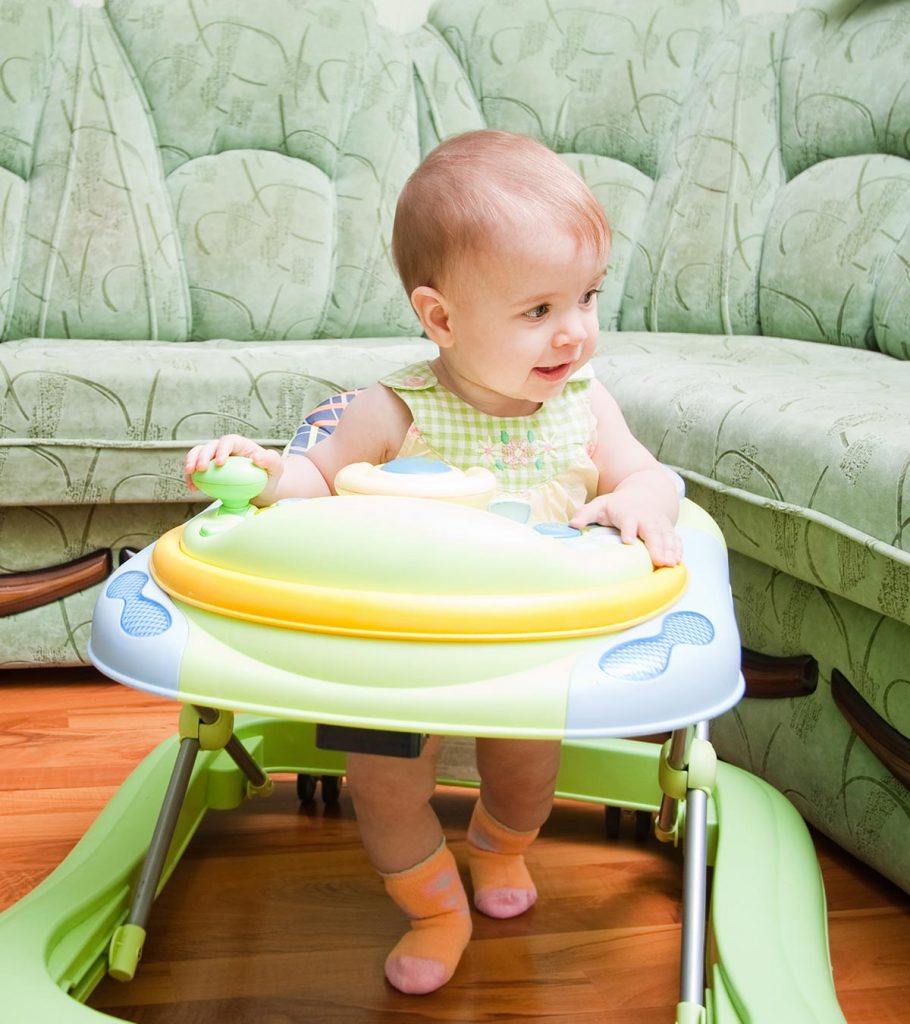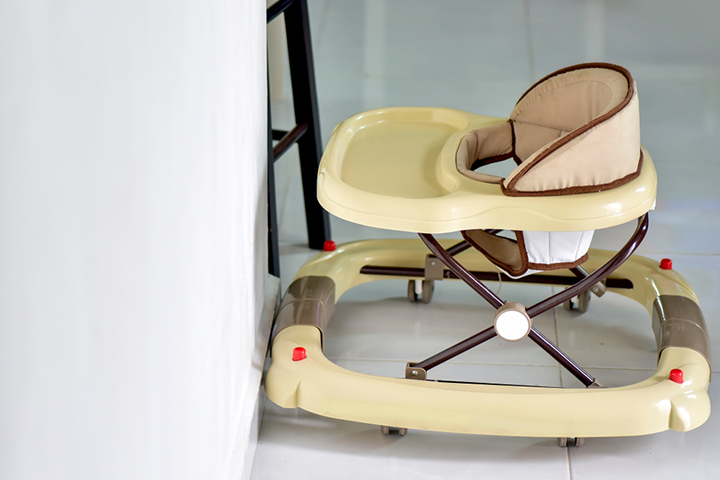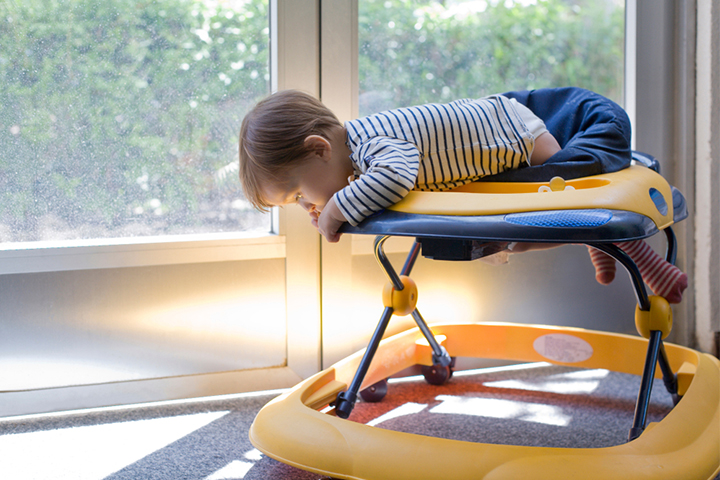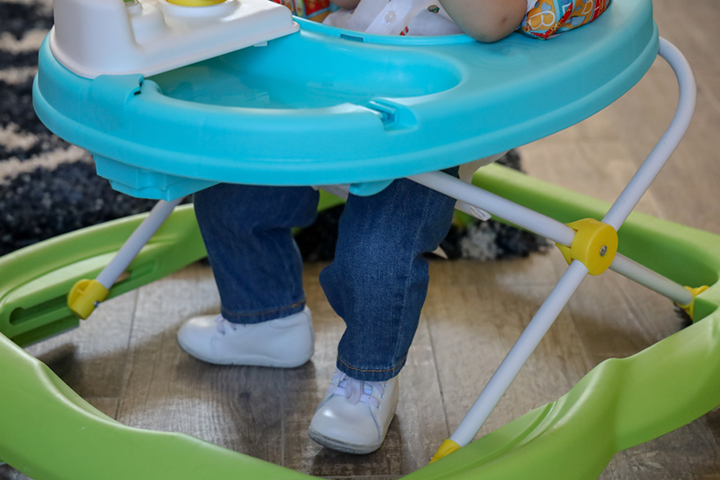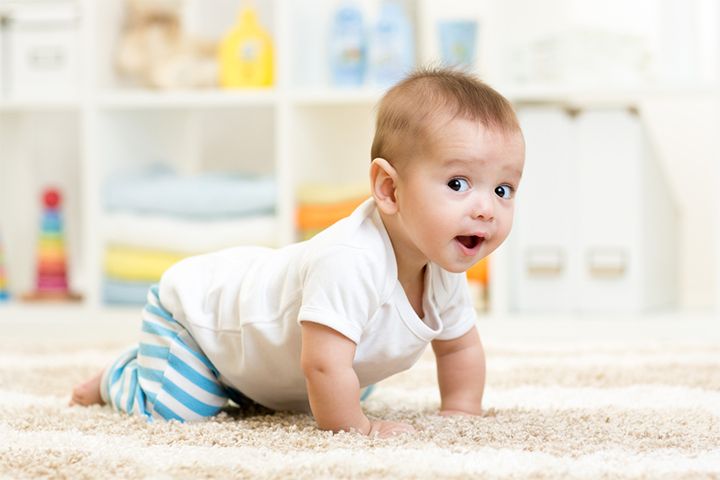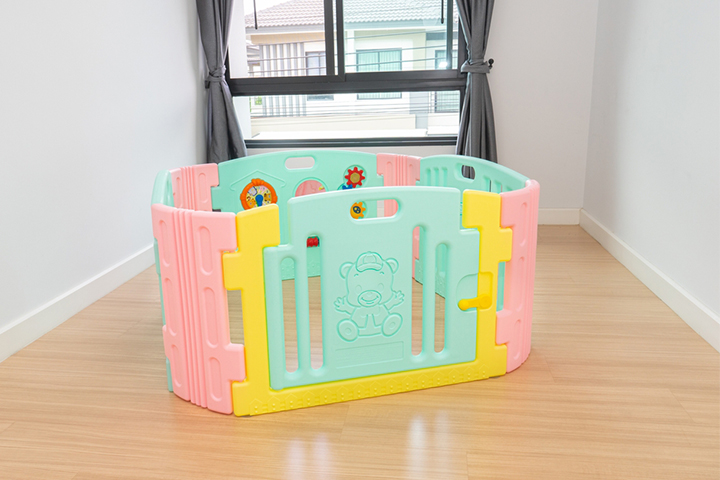Baby walkers are intended to help babies or infants learn and adapt to walking. Although different babies develop their skills at different ages, statistically, 12 months is the average age by which babies start to walk (1). During this time, most parents (50-77%) resort to walkers to help their little ones (2). However, certain experts may have a different opinion about it. This post will tell you why.
Is It Safe For A Baby To Use Baby Walkers?
No. Baby walkers are unsafe and are a leading cause of injury in children under the age of four (2).
Pediatric experts unanimously discourage the use of this equipment. The American Academy of Pediatrics (AAP) has also called for a ban on baby walkers with wheels (3). Therefore, parents must prioritize baby safety and avoid using walkers.
What Makes Baby Walkers Unsafe For Infants?
As per the American Academy of Pediatrics, walkers eliminate a baby’s desire to walk, rather than help them learn how to walk (3). Apart from these, there are other reasons to think twice before using a walker as a mobility aid. These are:
- Risk of falling from the stairs: Baby walkers are a hazard when you have stairs in your home. According to the US Consumer Product Safety Commission (CPSC), most walker-related injuries happen when a baby in a walker moves to the edge of the staircase and falls (4).
- The baby can lose balance: Babies could lose their balance when gliding on the floor in a walker and take a fall. According to the AAP, a child can move at a speed of three feet per second in a walker. Moving at such incredible speeds is overwhelming for a baby and can result in the loss of balance.
- The head gets hurt the most when a baby falls from the walker: When a baby loses balance in a walker, it is their skull that takes the brunt of the fall. A study has found that 82% of falls from a baby walker lead to a head injury in the infant (5). The head is extra delicate in babies due to their soft skull bones and developing brain. Any grievous injury can cause a lasting impact on the baby’s life.
- A walker increases the risks of accidental death: Baby walkers could lead to not just falls, but a variety of other incidents. Medical experts state that a baby on a walker can have access to upper shelves from where they may pull down large items that can fall on their heads. The easy accessibility increases the risk of the baby getting access to poisonous substances, hot food items, and also places like the swimming pool or the bathtub where they can fall, choke, and even drown.
Accidents with baby walkers can happen even when elders are around. Parents can do little during an untoward incident since things happen quickly with barely any time to react. Baby walkers are not only risky but can also interfere with the baby’s development.
Do Baby Walkers Help In Baby’s Development?
No. Unlike popular belief, walkers neither help in baby development of the baby nor do they make the baby walk better. An infant will stand up and start cruising (walk with support) once their legs are ready, irrespective of whether they use a walker or not.
- A study conducted on 109 infants published in the Journal of Developmental and Behavioral Pediatrics showed that the infants, who used walkers, sat, crawled, and walked later than the ones who did not (6). This documents that baby walkers can delay physical development by making the baby use their leg muscles differently than they usually do.
- Also, walkers reduce the baby’s time on the floor. This causes a miss on practicing important, repetitive movements needed for them to reach their walking milestones. Babies use their toes when they are in a walker. This tightens their leg muscles and interferes with early childhood development milestones such as walking. This habit remains even when they are out of the walker, and they often want to keep using their toes. This impacts their walking practice.
- Also, babies sit and pull themselves up while learning to balance. A baby doesn’t balance in a walker, delaying their learning of this important motor skill. Being in a walker also means less time on hands and knees in a crawling or pre-crawling position. This is important to developing weight bearing through both the pelvis and shoulders.
What Are The Alternatives To Baby Walkers?
Play yards or playpens and stationary activity centers are safer alternatives to a baby walker and are known to boost a baby’s physical development without causing any risks. Stationary activity centers like exersaucers are like walkers with no wheels and can be used for a few hours for playtime every day (7).
You can get these activity centers when the baby is around eight months old (1). Play yards can be used for babies of any age since the baby can sit, stand, lie down, or try to walk in them safely.
Despite the widespread belief that baby walkers help babies when they are learning to walk, pediatricians confirm that parents should not use them as they pose a risk to the baby’s safety. Baby walkers are considered unsafe because they increase the risk of children falling down the stairs, losing balance, or hurting their heads. Moreover, walkers delay the development of leg muscles and prevent them from spending time on the floor. If you want to help your baby learn to walk, stationary activity centers and play yards are more beneficial. Further, it is important to remember that children learn skills at their own pace, and hurrying or forcing them will create stress.
Key Pointers
- Walkers are commonly used by parents with the misconception that they help babies walk faster.
- However, the American Academy of Pediatrics (AAP) discourages their use due to potential risks.
- Walkers are one of the leading causes of accidents and injuries in infants.
- Safer alternatives to walkers include activity centers and play yards.
This video explains the safety of baby walkers and the pros and cons along with some surprising facts. Watch this video to learn more
